US Sees Ukraine Victory Over Russia With 'Right Equipment'
The United States believes Kyiv can win the war against Russia if it has the "right equipment", Pentagon chief Lloyd Austin said Monday, as strikes on railway infrastructure in central Ukraine killed at least five.
A landmark visit by Austin and Secretary of State Antony Blinken to Ukraine came as the war entered its third month, with thousands killed and millions displaced by the fighting.
The conflict has triggered an outburst of support from Western nations that has seen weapons pour into Ukraine to help them beat back the Russian invaders.
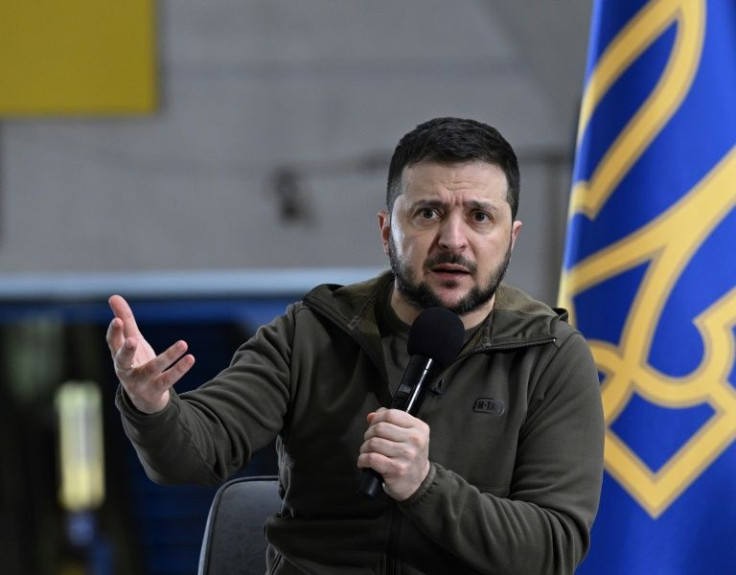
"The first step in winning is believing that you can win. And so they believe that we can win," Austin told a group of journalists after he and Blinken met Ukrainian President Volodymyr Zelensky.
"We believe that we can win -- they can win -- if they have the right equipment, the right support."
The meeting between the two sides was "very productive and detailed", according to a Pentagon spokesman, adding that Zelensky was also briefed on a security summit in Germany on Tuesday among Western allies.
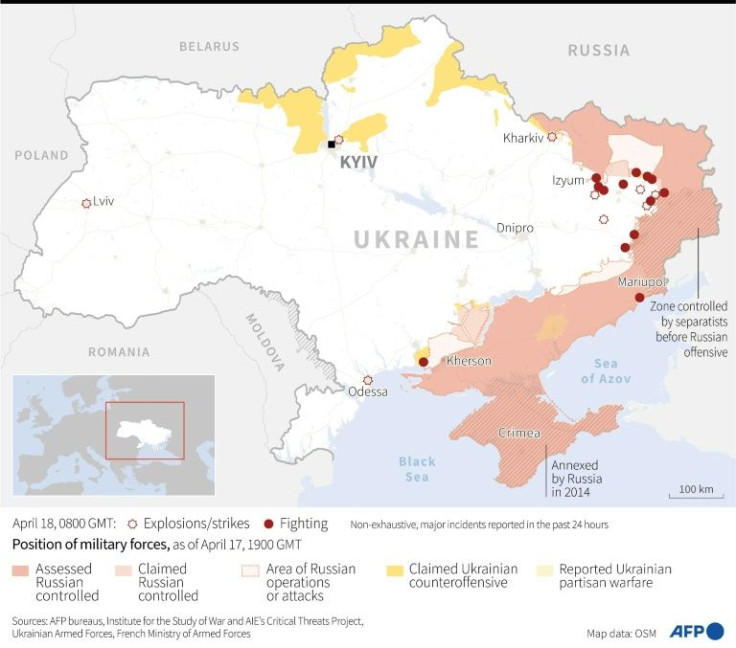
After the talks, Austin said the US hoped the Russian military would be exhausted in Ukraine.
"We want to see Russia weakened to the degree that it can't do the kinds of things that it has done in invading Ukraine," said Austin.
For months, Zelensky has been begging for heavy weapons -- including artillery and fighter jets -- from Western countries, vowing his forces could turn the tide of the war with more firepower.
The calls appear to be resonating now, with a host of NATO countries pledging to provide a range of heavy weapons and equipment, despite protests from Moscow.
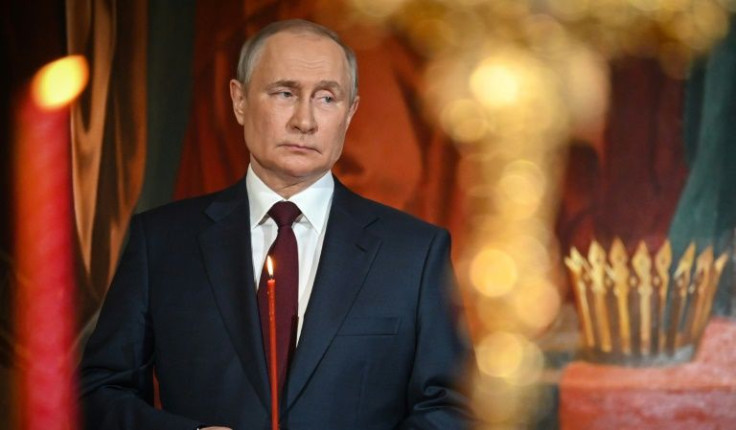
UK Defence Secretary Ben Wallace announced Monday they would send Ukraine armoured vehicles able to fire missiles against Russian warplanes.
"These Stormer vehicles will give Ukraine forces enhanced short-range anti-air capabilities both day and night," he said.
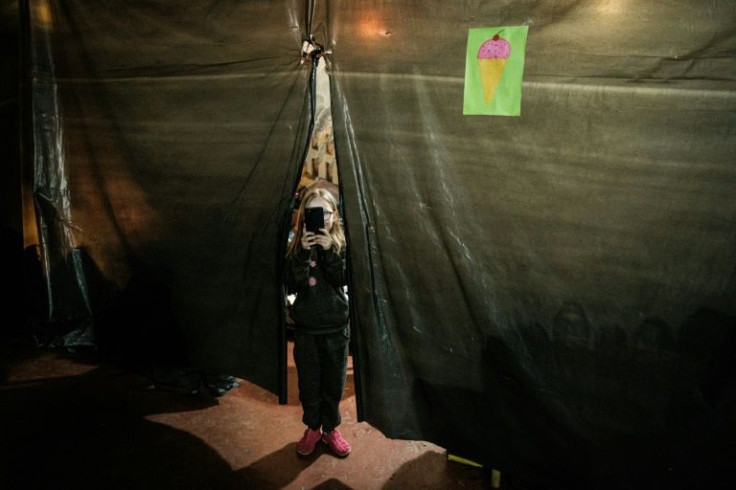
The US has been a leading donor of finance and weaponry to Ukraine and a key sponsor of sanctions targeting Russia, but had not yet sent any top officials to Kyiv. Several European leaders have already travelled there to underscore their support.
"Many countries are going to come forward and provide additional munitions and howitzers. So we're going to push as hard as we can, as quickly as we can, to get them what they need," Austin said.
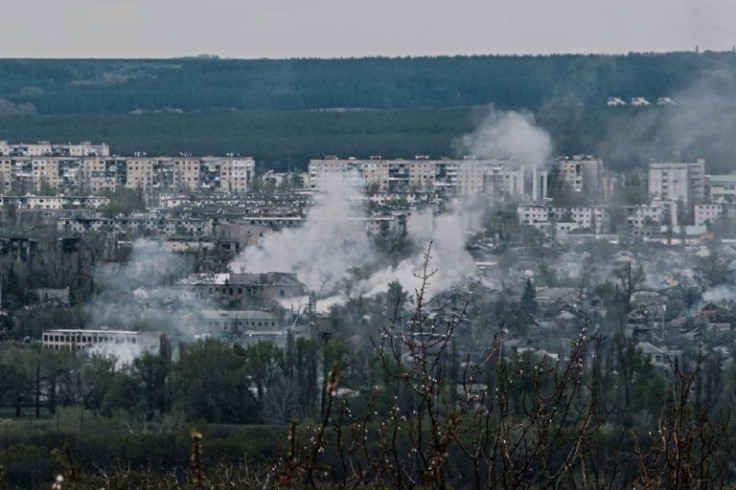
Blinken and Austin also said US diplomats would begin a gradual return to Ukraine this week and announced $700 million (653 million euros) in additional military aid.
Forty German diplomats will meanwhile be heading home from Russia after Moscow announced their expulsion, following Berlin's decision to kick out 40 Russian diplomats earlier this month.
The highly sensitive trip by two of President Joe Biden's top cabinet members came as fighting continued across swathes of Ukraine, casting a long shadow over Easter celebrations in the largely Orthodox country.
Following a weekend full of fighting, at least five people were killed and another 18 injured on Monday after a Russia rocket attack targeted railway infrastructure in the central Ukraine region of Vinnytsia.
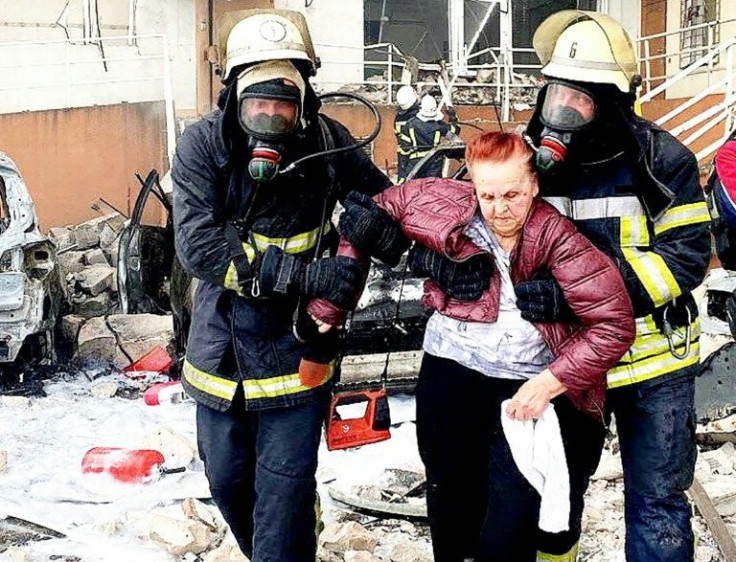
"Rescue operations are under way, investigators, prosecutors and other services are working at the scene," the office of the Ukrainian prosecutor general said in a statement on social media.
From The Hague, the International Criminal Court's chief prosecutor is to join an EU investigations team to probe "alleged core international crimes committed in Ukraine", official said.
Russia's air force targeted 82 Ukrainian military sites, including four command posts and two fuel depots, and the army fired high-precision missiles at 27 targets, the Russian defence ministry said on Monday.
The Ukrainian defence ministry said Russia was strengthening its air defences and continuing to hit infrastructure and supply lines bringing military assistance from Ukraine's partners.
Ukraine's second city Kharkiv remains partially surrounded and Moscow's forces are regrouping in the south, but a Russian attempt to break through towards Zaporizhzhia in the east failed, the ministry added.
The Vinnytsia attacks came as Russia's defence ministry announced a ceasefire around the sprawling Azovstal steel plant in Mariupol, following calls over the weekend to pause fighting to allow civilians to leave.
Ukraine says hundreds of its forces and civilians are holed up inside Azovstal, and Kyiv has repeatedly called for a ceasefire to allow civilians to safely exit the shattered city.
The Russian defence ministry said its troops would halt hostilities and ensure the withdrawal of civilians from early afternoon.
It urged the Ukrainian side to show "readiness" to start the humanitarian evacuations "by raising white flags" at Azovstal.
But Ukraine said Moscow had not agreed to its request for a humanitarian corridor to let wounded soldiers and civilians leave Azovstal.
"Unfortunately, there are no agreements on humanitarian corridors from Azovstal today," Deputy Prime Minister Iryna Vereshchuk said on Telegram.
Last week, President Vladimir Putin ordered his forces not to assault the steelworks, but the Ukrainians say land, sea and air attacks continue to rain down there unabated.
A video posted by the far-right Azov Regiment, whose fighters are based in Azovstal, showed war-weary women and children sheltering in the plant's underground bunkers, pleading for relief.
"There are 600 people here. No water, no food. What are we going to do here? How long will we stay here?" asked one woman.
"We haven't been out for two months now. I don't even know what the weather is like there. It feels like it's still February 28," said another woman.
© Copyright AFP {{Year}}. All rights reserved.





















